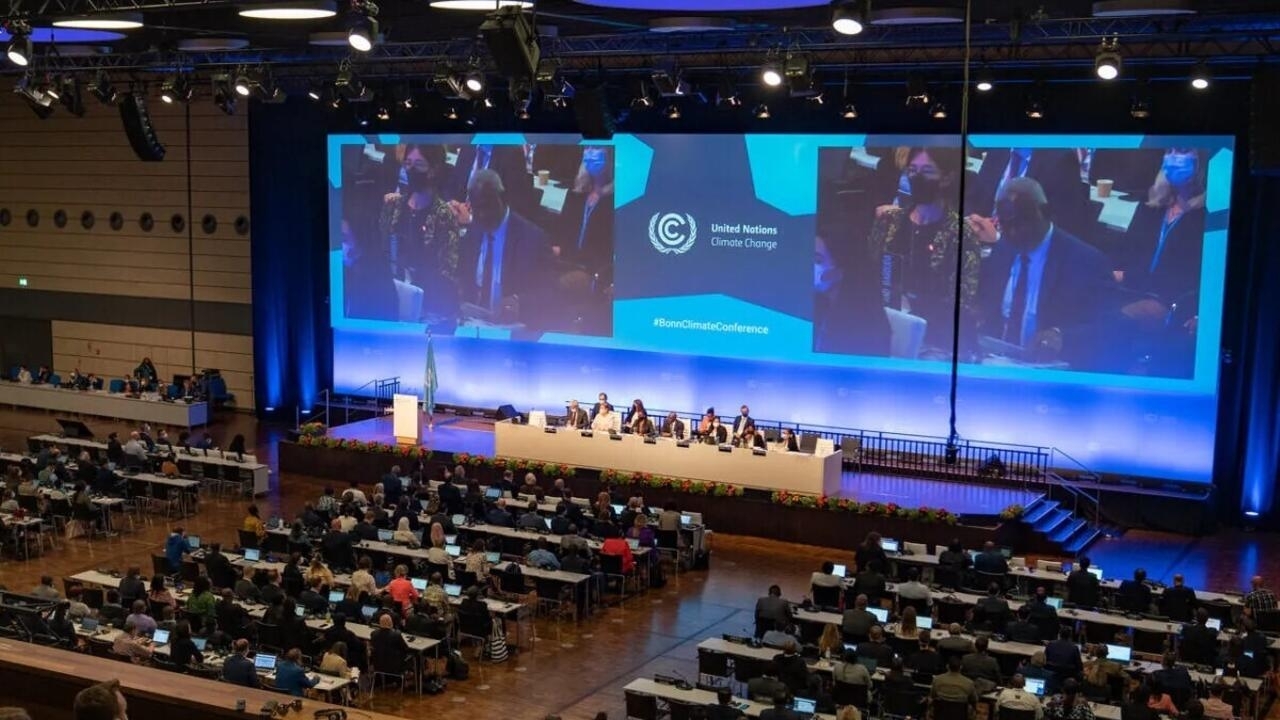What is the role of human rights organizations in climate negotiations
Discussions on the environment that do not include the people most affected by disasters are ineffective responses to the climate emergency
 Conferência de Bonn, realizada em junho deste ano. Foto: UN Climate Change
Conferência de Bonn, realizada em junho deste ano. Foto: UN Climate Change
To contrast the term “development”, the quilombola thinker Nego Bispo uses the word “involvement”. “Humanity is against involvement, it is against us living involved with the trees, with the land, with the forests. Development is synonymous with disconnection, taking from the cosmos, breaking originality,” he wrote in “The earth gives, the earth wants” (published by Ubu). “Having a relation in the original way, for the Euro-Christians, is a sin. They try to humanize and make synthetic everything that is original.”
Were he present at the Bonn Climate Change Conference (SB58), which took place in June, in Germany, and at other world meetings that address the subject, Nego Bispo would see his concepts taking shape. The event – attended by 196 countries and held to analyze the progress of climate negotiations before COP28, which will take place in the United Arab Emirates in December – was marked by the triumph of “development” over “involvement”, in a clear lack of connection between the topic of human rights and climate issues.
As pointed out by Claudio Angelo, coordinator of Communication and Climate Policy at the Climate Observatory, political conflicts came in through the front door in Bonn. “They are in place here like I haven’t seen at intersessional meetings since pre-Copenhagen,” he said. “What should have been a technical and very low-profile meeting was hijacked by the usual conflict between emerging countries that don’t want to cut emissions and developed countries that don’t want to pay their historic climate debt.”
According to Angelo, the climate of distrust between the parties present at the conference raises a very negative signal for COP28, which, according to him, “no longer inspires confidence due to its president, who is highly questioned internationally”. “A success in Dubai would be surprising to me,” he said. This is because, in addition to taking place in the United Arab Emirates, one of the world’s largest oil producers, the event will be chaired by the CEO of the national oil company, Sultan Ahmed al-Jaber.
Fossil fuel convention?
On the first day of the Bonn Conference, a group of some 20 female politicians and climate activists published an open letter calling for the appointment of a co-chair for COP28. The idea is to provide a balance of power and guarantee a presence in the talks, considering that since the very first COP, in 1995, the event has only been chaired by a woman on five occasions.
This asymmetry is troubling because, as pointed out by a UN report published in 2022, women are 14 times more likely to die in climate disasters than men. “Women are the first victims of climate deregulation. Nevertheless, they are completely absent from the negotiating table,” Elise Buckle, a French environmentalist who oversaw the drafting of the letter, told RFI. “If we want to fight climate change together and not turn the climate negotiations into a convention on fossil fuels, let’s start by giving priority to the people most affected, not those who take advantage of a status quo and a lack of courage on fossil energies.”
According to Emanuelle Góes, SB58 observer, epidemiologist, researcher and leader of the line of research on “Gender Equity and Justice” at the Iyaleta Research Association, the discussions on the subject were tentative. “Local initiatives were presented with measures taken by some countries and United Nations agencies, such as the UNDP, UNFPA and UN Women,” she said. “What was reflected in the discussions was governance (participation of women at the center of decisions) and inclusive planning with financing and integrated policies. This draws attention to the need for expertise on climate change and gender, and on climate change and reproductive health, for example.”
In addition to the participation of women, indigenous contributions to climate discussions are becoming increasingly inevitable when facing a global collapse. In this regard, the participation of the delegation from Brazil, which included important leaders, was notable. “After years of work and engagement to make the participation of Brazilians accessible and inclusive, mainly at SB56 and COP27 this year, the delegation made specific technical contributions to the platform’s work in the areas of adaptation, Global Balance, the activities planned for COP28 in Dubai and the new 2025-2027 work plan,” explained Andreia Fanzeres, of the local organization Native Amazon Operation (OPAN).
According to Gabriel Mantelli, advisor for the Defense of Socioenvironmental Rights program at Conectas, “international forums that discuss climate and environment and decision-makers need to emphasize that excluding from discussions the people most affected by environmental and climate catastrophes only helps to intensify the climate emergency problem.” For this reason, human rights organizations such as Conectas have defended the application of a language of human rights in climate decisions. Mantelli said that “clashes over language not only cannot be treated as minor points, but they also need to be resolved using the international human rights system in dialogue with the demands of populations most vulnerable to the climate crisis.”


